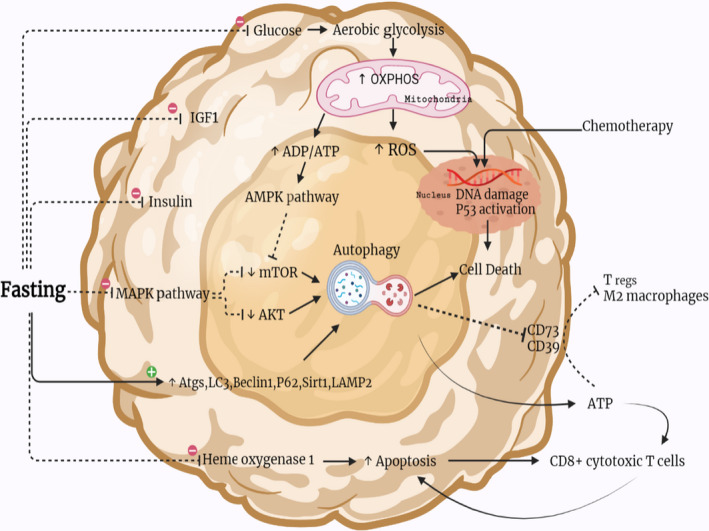FIGURE 2.

Mechanisms of fasting on cancer cells. Fasting suppresses glucose, IGF1, insulin, the MAPK pathway, and heme oxygenase 1 while increasing many autophagy‐regulating components (Atgs, LC3, Beclin1, p62, Sirt1, and LAMP2). Fasting causes cancer cells to release oxidative phosphorylation (OXPHOS) through aerobic glycolysis, which leads to an increase in reactive oxygen species (ROS), p53 activation, DNA damage, and cell death in response to chemotherapy. Fasting activates the autophagic process, which induces cell death through a variety of mechanisms. It also suppresses CD73 and CD39 expression and causes extracellular ATP accumulation, which inhibits Treg cells and the M2 phenotype while activating CD8+ cytotoxic T cells. Fasting also inhibits hemoxygenase 1. It accelerates cellular death and activates CD8+ cytotoxic T lymphocytes, which drive the apoptosis cycle once again.
